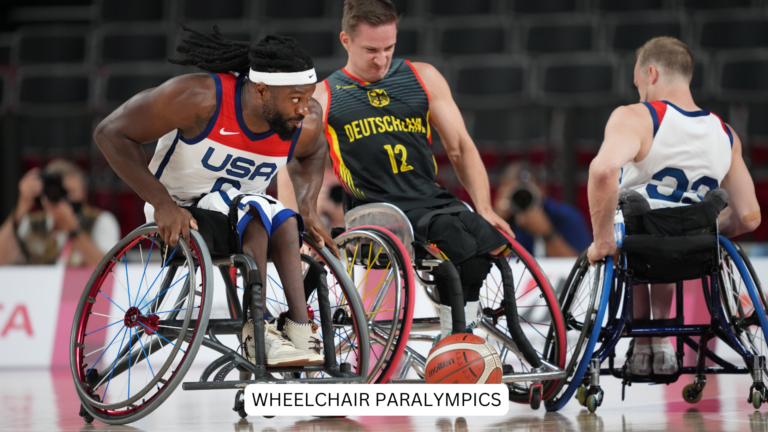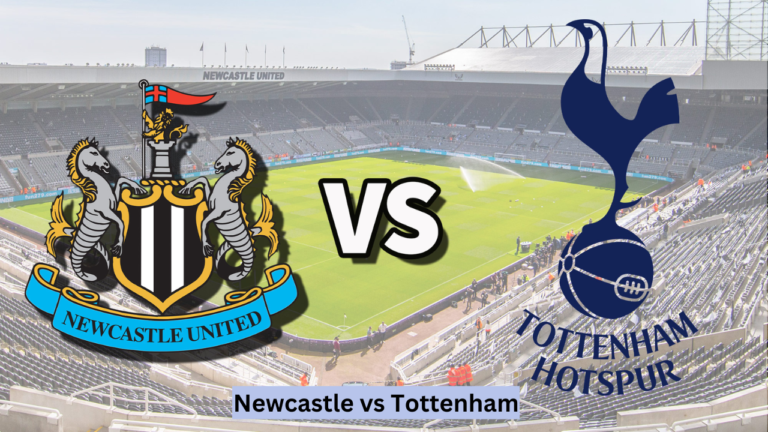In a moment that marked the end of a legendary chapter in athletics, Eliud Kipchoge, the world’s greatest marathon runner, announced his retirement from the Olympic stage after a disappointing performance at the Paris 2024 Games. Known for his unmatched dominance in the marathon, Kipchoge’s career has been a beacon of inspiration for athletes around the globe. Yet, in what he himself described as his “worst marathon,” Kipchoge finished outside the medal positions, prompting the 39-year-old to make the difficult decision to end his Olympic journey.
This article reflects on Kipchoge’s illustrious career, the significance of his final Olympic marathon, and the legacy he leaves behind in the world of athletics.
Table of Contents
The Rise of a Marathon Legend
Eliud Kipchoge’s journey to becoming the greatest marathon runner of all time is one of dedication, discipline, and extraordinary talent. Born on November 5, 1984, in the small village of Kapsisiywa, Nandi County, Kenya, Kipchoge grew up in humble surroundings. From a young age, he displayed a natural talent for running, often running long distances to and from school. His early exposure to endurance running laid the foundation for what would become an unparalleled career in long-distance running.
Kipchoge’s breakthrough came in 2003 when, at just 18 years old, he won the gold medal in the 5000 meters at the World Championships in Paris. This victory marked the beginning of his rise in the world of athletics. Over the next decade, Kipchoge transitioned from track running to marathons, where he would truly make his mark.
His debut marathon in Hamburg in 2013 was a sign of things to come—he won with a time of 2:05:30, setting a new course record. This victory was just the start of a streak that would see Kipchoge dominate the marathon world, winning major marathons in London, Berlin, and Chicago, and setting world records that still stand today.
The Olympic Journey: Glory and Triumph
Kipchoge’s Olympic career has been nothing short of remarkable. He made his Olympic debut at the 2004 Athens Games, where he won a bronze medal in the 5000 meters. Four years later, in Beijing, he improved upon this with a silver medal in the same event. However, it was in the marathon that Kipchoge would achieve his greatest Olympic success.
In the 2016 Rio Olympics, Kipchoge won gold in the marathon, cementing his status as the world’s best long-distance runner. His performance in Rio was a masterclass in pacing and endurance, as he pulled away from the competition in the final kilometers to finish with a time of 2:08:44. This victory was followed by another gold medal in the marathon at the Tokyo 2020 Olympics (held in 2021 due to the COVID-19 pandemic), where he defended his title with a dominant performance, finishing in 2:08:38.
Kipchoge’s success on the Olympic stage was not just about his physical abilities; it was also a testament to his mental toughness and his philosophy of “no human is limited.” This mindset propelled him to break barriers, including becoming the first person to run a marathon in under two hours, albeit in a non-record-eligible event, the INEOS 1:59 Challenge.
Paris 2024: The Final Olympic Marathon
Heading into the Paris 2024 Olympics, Kipchoge was once again the favorite to win the men’s marathon. However, as the race unfolded, it became clear that this would not be Kipchoge’s day. Despite his best efforts, he struggled to keep pace with the leading pack, which included Ethiopia’s Tamirat Tola and Belgium’s Bashir Abdi, both of whom had been strong competitors in recent years.
Kipchoge’s struggles were evident early in the race as he uncharacteristically fell behind, unable to muster the energy that had carried him to so many victories in the past. As the race progressed, he faded further, eventually finishing outside the top ten—a position unthinkable for the man who had so often made marathon running look effortless.
For Kipchoge, the result was a stark contrast to his previous Olympic triumphs. “This was my worst marathon,” Kipchoge said in a post-race interview. “But I’m grateful for the journey, for all the experiences I’ve had in this sport. It’s time to move on.”
The disappointment was palpable, not just for Kipchoge but for the millions of fans who had followed his career with admiration and awe. Yet, even in defeat, Kipchoge’s grace and humility shone through. He acknowledged the better performances of his competitors and expressed gratitude for his long and successful career.
The Decision to Retire: Reflecting on an Illustrious Career
Kipchoge’s decision to retire from the Olympics marks the end of an era in marathon running. For nearly two decades, he has been the face of long-distance running, setting standards that few could hope to match. His retirement from Olympic competition is a moment of reflection not only for Kipchoge himself but also for the entire athletics community.
In announcing his retirement, Kipchoge spoke about the need to make way for the next generation of runners. “I’ve had a great run—literally,” he said with a smile. “But it’s time for the younger athletes to take the stage. I hope I’ve inspired them to push their limits and achieve their dreams.”
Kipchoge’s influence extends far beyond his race results. He has been a role model for athletes around the world, demonstrating that success is not just about talent but about hard work, discipline, and a positive mindset. His mantra of “no human is limited” has resonated with people from all walks of life, encouraging them to pursue their goals with determination and belief.
As Kipchoge steps away from Olympic competition, his legacy is secure. He leaves behind a record that includes not only two Olympic gold medals but also the world marathon record, which he set in Berlin in 2018 with a time of 2:01:39. His achievements have redefined what is possible in marathon running, and his impact on the sport will be felt for generations to come.
The Changing Landscape of Marathon Running
Kipchoge’s retirement comes at a time when marathon running is undergoing significant changes. The dominance of East African runners, particularly those from Kenya and Ethiopia, has been a defining feature of the sport for decades. However, in recent years, athletes from other parts of the world, such as Europe and North America, have been making their mark.
The Paris 2024 men’s marathon highlighted this shift, with Tamirat Tola of Ethiopia and Bashir Abdi of Belgium finishing at the top of the leaderboard. These athletes represent the new generation of marathon runners who are challenging the established order and bringing new excitement to the sport.
Kipchoge’s presence in the marathon has been a benchmark against which all others are measured. His departure opens the door for these younger athletes to step into the spotlight and continue pushing the boundaries of what is possible. The competition is fierce, and the future of marathon running looks brighter than ever, with new talent emerging and records waiting to be broken.
What’s Next for Eliud Kipchoge?
As Kipchoge steps away from the Olympics, the question on everyone’s mind is: what’s next for the marathon legend? While he may be retiring from Olympic competition, Kipchoge has hinted that he is not done with the sport entirely.
In interviews, Kipchoge has expressed interest in focusing on other marathon events, particularly those that hold personal significance for him. He has also spoken about his desire to give back to the sport, potentially through coaching, mentoring, and advocacy work. Kipchoge has long been an advocate for the power of sport to change lives, and he may now have more time to devote to these efforts.
Additionally, Kipchoge is likely to continue his work with charitable organizations and initiatives aimed at improving education, health, and environmental sustainability in Kenya and beyond. His influence as a global ambassador for the sport of running and his status as a role model for millions around the world ensure that whatever he chooses to do next, Kipchoge will continue to make a positive impact.
The Legacy of Eliud Kipchoge
Eliud Kipchoge’s legacy is one of unparalleled achievement, but it is also one of humility, perseverance, and a relentless pursuit of excellence. His career has been marked by moments of brilliance that have captivated the world—moments that have inspired countless individuals to believe in their own potential.
Kipchoge’s impact on marathon running is profound. He has not only set records but has also redefined what it means to be a marathon runner. His approach to training, his mental discipline, and his philosophy of life have influenced a generation of athletes. He has shown that success is not just about winning but about pushing the limits of what is possible and doing so with integrity and grace.
As the world reflects on Kipchoge’s career, it is clear that he has left an indelible mark on the sport of marathon running. His achievements will be celebrated for years to come, and his story will continue to inspire future generations of runners.
Eliud Kipchoge’s announcement of his retirement from the Olympics marks the end of a legendary career that has set new standards in marathon running. While his final Olympic race did not go as planned, Kipchoge’s legacy is secure. He leaves behind a record of unparalleled success and a legacy of inspiration that extends far beyond the world of athletics.
As Kipchoge moves on to the next chapter of his life, the impact of his career will continue to be felt by athletes and fans around the world. He has shown that with hard work, discipline, and belief, no human is limited—and that is a lesson that will resonate for generations to come.
Eliud Kipchoge may have run his last Olympic marathon, but his influence on the sport and the world will endure. As we celebrate his achievements and reflect on his contributions, we are reminded of the power of sport to inspire, to challenge, and to unite us all.







